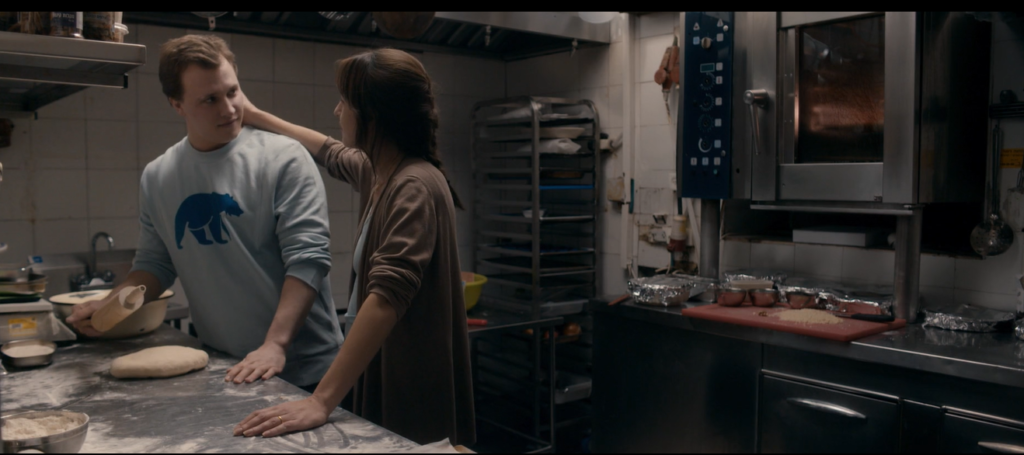The Israeli-German film touches on the politics of food, kosher rules specifically. It’s also a meditation on love and its losses
I don’t enjoy movies where men make beautiful food, and the Israeli-German production The Cakemaker drew me in especially because its protagonist Thomas is most often rolling a shapeless lump of dough. The glistening cinematic confectionery of the Germanic world makes only occasional appearances. Instead, our protagonist Thomas often turns to dough — it is the equivalent of a runner who goes for a run when he/she is grieving or confused and needs time to think things through.

The cakemaker, the story of a lover grieving for his secret lover Oren, has a lot of this kind of unstructured solitude. This is what struck me about the film when I saw its trailer. Time and the kneading of it, the processing of emotions and things not worked out in the head. Oren’s widow Anat too is often shown alone, smoking or walking the streets of Tel Aviv. In this time especially, locked down with parents whom I sometimes have to manage like teenagers, and who in turn treat me like one at all times, I crave for this kind of beauteous solitude.
Thomas is helping Anat learn to knead dough when she kisses him. He accepts her embrace and holds her, and the sex that follows looks like a continuation of kneading dough — the gentle, intimate massaging, as if soothing, and holding and shaping something all at the same time. I’ve never thought I would compare sex with dough, but the sequence is frankly astonishing in the way it shows touch and intimacy. There is a lot of quiet in the relationship with Thomas and his lover’s widow, their time together is a conversation of the unspoken. I’ve heard Ernest Hemingway’s writing described as the graph of the unspoken, that everything that is important is not written, if you plot it, you get the heart of the matter. This film felt like the cinematic expression of that.
I came to the film on a political recommendation, a friend told me that the film is about the rules of kosher, the politics of eating and exclusion. And there is this too — through the film, Thomas is told that he cannot touch the oven in the Tel Aviv cafe. Kosher, as you know, is the set of rules that govern Jewish eating. Many north American and European mass food brands carry a kosher certification in their fine print. At one point in the film, the cafe loses its kosher certification, and there are warnings stuck outside the premises about the food.
Doesn’t it remind you of the food stories you hear in India today? A Karachi bakery vandalized because this is not Pakistan, food companies advertising they have no Muslim staff, customers refusing delivery of food because the delivering executive is Muslim? The fact that a food delivery app wins accolades for standing up for its Muslim staff is itself indicative of the politics of this country, isn’t it? Some months ago, I wrote of how the “beef lynchings’ had materialized as faultlines around meat in Bollywood films. It’s unsurprising that this film comes from a part Isrseli production — the country whose Zionist politics Narendra Modi seems most inspired by.
The Cakemaker is not available on any streaming platform in India yet. I saw it courtesy of a generous friend.
Director: Ofir Raul Grazier
Starring Tim Kalkhof, Sarah Adler, Roy Miller